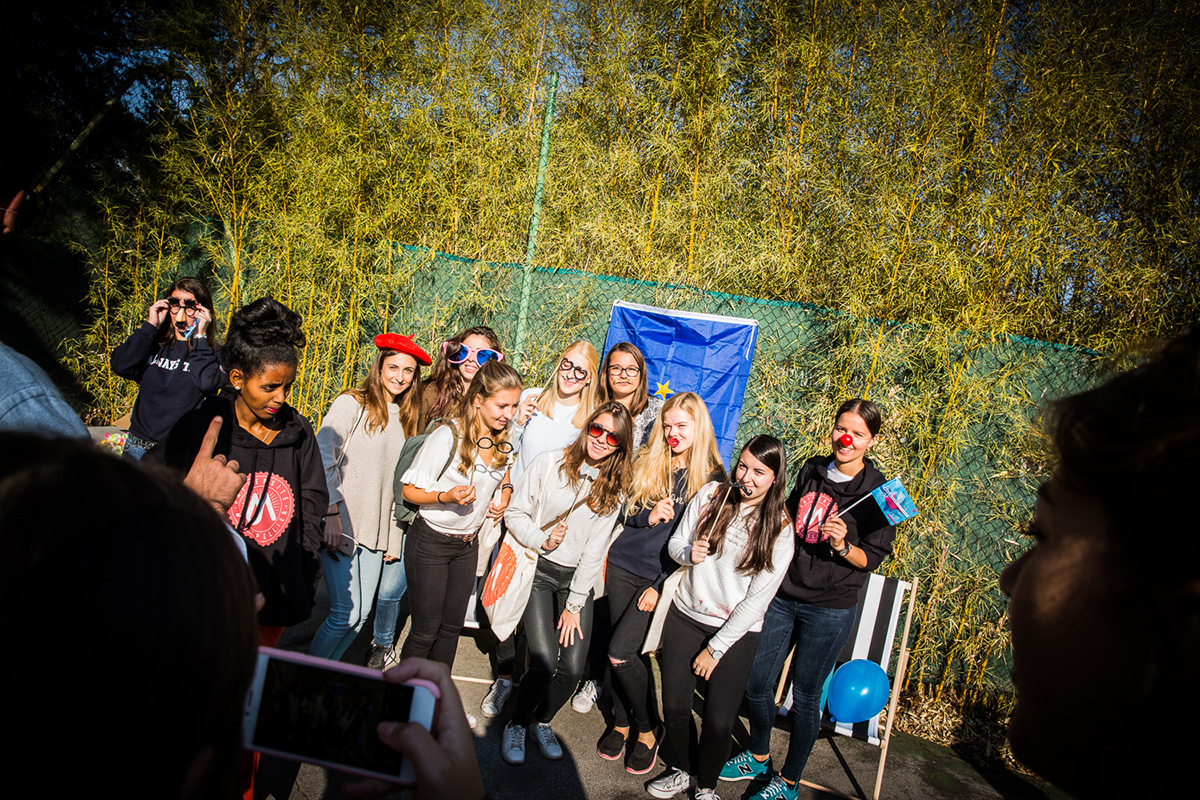A new chapter in the history of Erasmus+
This is a new Erasmus+ program that will begin in early 2021 and run for the next six years. Responsible, open, and ambitious are the three key words of the upcoming roadmap. As an added bonus, the program was awarded the "Good Practices" label by the European Commission last October, recognizing the quality of the work carried out by UM teams over the 2014-2020 period.

This small plaque honors the great work done by the international relations teams at UM, both centrally and in the various departments. This recognition was awarded following an audit carried out by the National Erasmus Agency, which " validates the quality of the implementation of the Erasmus+ program over the 2014-2020 period and its compliance with the charter signed by Philippe Augé, President of the UM," explains Nadia Lagarde, Deputy Director of International Relations (DRI).
Monitoring outgoing and incoming mobility, providing language support, and ensuring that our courses are recognized in partner countries, " is one way of certifying our best practices," continues Nadia Lagarde, especially since students are not the only beneficiaries, as the European program is also aimed at our university staff (teachers and administrators).
Exchange to become stronger
This news comes at just the right time, as the internal information and promotion campaign for the new Erasmus+ program, which will cover the period 2021-2027, is set to begin in the coming weeks. According to Camylle Pernelle, head of department, "the Erasmus+ program remains little known outside the mobility component. There are many opportunities for cooperation, with a strong focus on the exchange of good practices, innovation, and capacity building in higher education institutions."
Internationalization of doctoral studies in collaboration with universities in South Africa, sharing expertise in green transition and sustainable development with our European partners as part of the UNI-ECO project, work on structuring the system for validating prior learning with Algerian universities, creation of a master's degree in water management in West Africa, etc. These are just a few examples that demonstrate the diversity and openness of the missions carried out within the framework of Erasmus+.
Responsibility, openness, and ambition
The DRI intends to expand these missions through this new program, which is structured around three key areas: responsibility, openness, and ambition. " Responsibility means paying even closer attention to issues of ecological transition, for example by giving greater priority to sustainable modes of transport , " explains Camylle Pernelle. More open too, thanks to more inclusive measures, " we want to extend our mobility services to people with disabilities," adds Frédéric Achard, head of the mobility department, " and take greater account of socially disadvantaged groups." To this end, hybrid mobility solutions and greater digitalization will be offered.
Ambitious, finally, because " with this new program, Europe is promising a tripling of budgets and an expansion of mobility," continues Frédéric Achard. "This means more scholarships and mobility opportunities for students, who should know that we are here to help them achieve their international mobility goals with as much assistance as possible by mobilizing Erasmus+ scholarships, AMI scholarships , and even regional scholarships."
"You have an idea, we turn it into a project."
However, this information campaign is not only aimed at students who are planning to go abroad.
Erasmus+ is also aimed at Professors would like to set up projects within the framework of the program, as Camylle Pernelle points out: " If you have an idea, we'll turn it into a project—that's the message we want to convey to them. Another aim of the new program is to involve local authorities, regions, departments, and metropolitan areas more closely. At the national level, UM was once again ranked among the top three most dynamic universities in terms of implementing its Erasmus+ program this year. It is unlikely to lose this position any time soon.
Student mobility at UM in figures
Each year, on average, 550 students participate in international mobility programs as part of their studies, with approximately 350 of them going to Europe. As for internships abroad, an average of 930 students are able to benefit from this experience, with 450 of them going to Europe. The most popular destinations are Canada, the United Kingdom, Spain, Ireland, and Germany. Finally, around 420 foreign students on exchange programs are welcomed to UM each year. Germans, Belgians, Spaniards, and Italians are the most numerous.